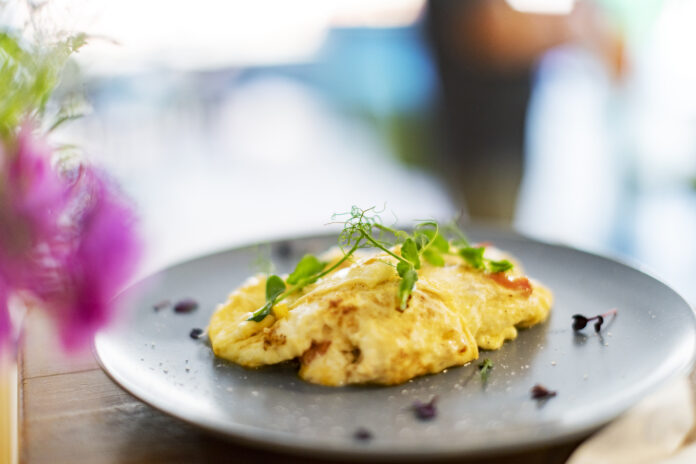Kuala Lumpur, Malaysia—A new industry report released today by the international NGO Lever Foundation finds that a significant majority of hotel groups in Malaysia have now committed to using only cage-free eggs in their operations.
The 2024 Malaysia Hospitality Industry Cage-Free Egg Scorecard examined the public policies of leading hospitality groups operating in Malaysia, defined as three- to five-star hotel chains with at least five locations globally. Out of the 35 qualifying hospitality groups, 60% (21 hospitality companies) have established clear timelines to transition to the exclusive use of cage-free eggs.
Over the past two years, domestic operators Hatten Hotels, Ascott Malaysia and Banyan Tree Malaysia have set timelines to shift to using only cage-free eggs. These pledges follow similar global commitments by hospitality groups operating in Malaysia including Accor, Best Western Hotels and Resorts, Club Med, Dorsett Hospitality International, Four Seasons Hotels and Resorts, Harilela Hotel, Hilton Hotels and Resorts, Hyatt, IHG Hotels and Resorts, Mandarin Oriental, Marriott, Melia Hotels International, Millennium Hotels and Resorts, Minor Hotels, Radisson, Shangri-La Hotels and Resorts, Sino Hotels, and Wyndham Hotels and Resorts. Eighteen hotel groups have committed to achieving this goal by 2025, while one group aims for 2027 and two others by 2030.
“The commitments by a majority of the country’s leading hospitality groups to source only cage-free eggs demonstrates a more humane stance on animal welfare and a commitment to enhanced food safety and quality,” said Vilosha Sivaraman, Sustainability Program Manager at Lever Foundation, an international NGO that worked with each of the domestic hospitality groups and several of the international groups on their commitments. “With consumers becoming increasingly concerned about how their food is produced, hospitality brands are focusing on responsible sourcing. The transition to cage-free eggs is a critical component of any comprehensive sustainability and food safety strategy, and we anticipate that other hospitality groups will soon follow suit as part of this industry-wide shift.”
The remaining 14 hotel groups that have not yet set a timeline for ending the use of caged eggs in their operations are Berjaya Hotels and Resorts, Avillion Hotel Group, Bayview International Hotels and Resorts, Boustead Hotel Group, CHM Hotels, Frasers Hospitality, Genting Malaysia, HPL Hotel and Resorts, Holiday Villa Hotel and Resorts, Lexis Hotel Group, Pan Pacific Hotel and Resorts, Hotel Seri Malaysia, Sunway Hotels and Resorts, and Swiss-Garden Hotel.
Animal protection and food safety organizations worldwide encourage a switch to cage-free eggs, which are less cruel to animals and safer for consumers. On battery cage egg farms, hens are confined for their entire lives in cages so small they can barely turn around and cannot express their natural behaviors. Extensive research conducted by the European Food Safety Authority and other institutions found that caged egg farms are up to 25 times more susceptible to key strains of salmonella compared to cage-free farms. The European Union, the United Kingdom, Canada, New Zealand, and parts of the United States, Australia and India have already banned battery cage egg production.
In response to this growing global trend, many hospitality, retail, food service and packaged food brands have pledged to exclusively use cage-free eggs in Malaysia and throughout Southeast Asia, including local retailers such as AEON Malaysia, MYDIN and Beacon Mart, and restaurant groups such as Old Town White Coffee, O’Brien’s Irish Sandwich Cafe, and Gloria Jean’s. The shift aligns with consumer preferences in the region, as a survey conducted by GMO Research found that 77% of consumers believe eggs sourced by restaurants, supermarkets, packaged foods companies and similar should come only from hens living in cage-free environments. Additionally, nearly 60% of Malaysian consumers said they were more inclined to patronize a food brand that sourced only cage-free eggs. An increasing number of consumers are also reducing or eliminating eggs from their meals entirely, the most significant way to protect the welfare of hens.







